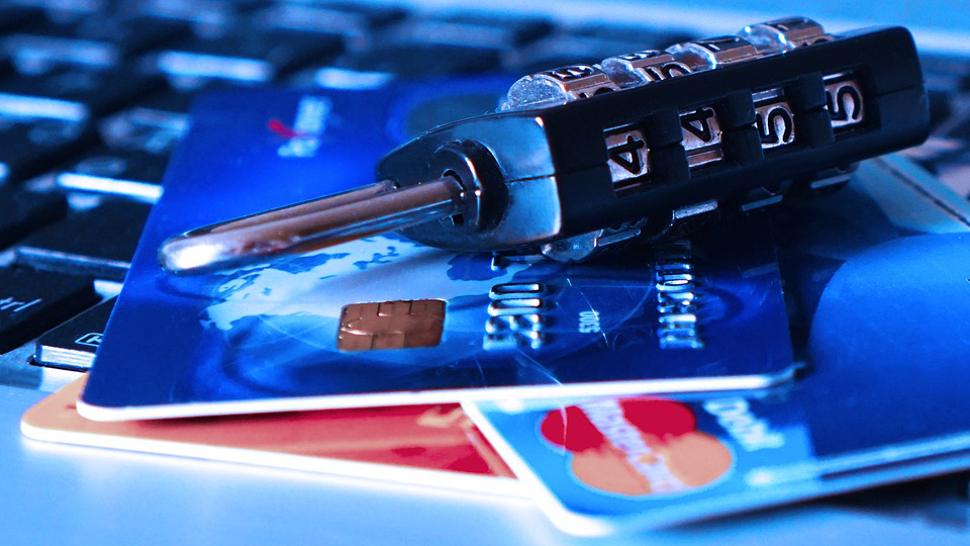Everyone is at risk of identity theft. But can you really protect against it? Companies offering identity theft protection and credit monitoring services suggest that you can. But how reliable are these services? Do they really deliver on their promise, or can you protect your identity from theft without signing up for expensive “identity insurance?”
What is identity theft protection?
Identity theft protection is a service from financial companies that is designed to protect your ID from theft, thereby avoiding the inevitable fraud that follows.
They typically offer three things:
- Monitoring: your credit files are monitored for changes.
- Alerts: you receive notification of new accounts opened in your name or unusual spending.
- Recovery: identity theft protection comes with an insurance element covering the recovery of lost bank and card balances and the impact of other fraudulent activity in your name.
You might also find regular emails about identity theft and other privacy-related news appearing in your inbox when you sign up for a protection service.
Who offers credit monitoring?
If you have decided to pay for credit monitoring, you have several options. As identity theft has increased in recent years, the number of solutions offering protection has grown.
Where you’re based determines what credit monitoring solutions are available to you.
For example, if you’re in the US, Norton LifeLock (opens in new tab), ID Watchdog (opens in new tab), and Identity Force offer comprehensive paid services with various coverage options, with monthly and annual subscriptions to match.
Need something less extensive? Credit Karma (opens in new tab) is a free service that checks for changes to Equifax and TransUnion reports. This service will send alerts and recommend financial products based on your current credit details. As such, it’s an all-in-one credit care tool.
Credit monitoring from Credit Karma is also available in the UK (opens in new tab).

Downsides of identity theft protection
The identity theft protection service you choose primarily depends on your expectations and budget.
Sadly, while all the big names promise much, there are too many differences between them. ID Watchdog’s premium protection offers fewer services than IdentityForce, so it pays to research which product is most suitable for you. For example, IdentityForce UltraSecure+Credit and LifeLock Ultimate Plus offer family plans, whereas ID Watchdog doesn’t.
Then there’s the issue of trust, reliability, and transparency.
For example, while Lifelock Ultimate Plus (opens in new tab) insurance is designed to reduce public exposure of your details, monitor the Dark Web for your data, and protect stolen funds, it is not without issue. Recent data breaches at LifeLock and Equifax might leave you wondering if they can be trusted.
Finally, these services offer their products at different price points.
How does credit monitoring work?
If you sign up for an ID theft protection service, you’ll find that credit monitoring is the most vital part of the service. But how does it work?
Credit monitoring is straightforward: the company providing the service monitors your credit record for any changes. These are then passed to you as alerts, and if anything unexpected happens, you can follow it up.
Some companies add to the basic credit monitoring with ancillary features. For example, some will check if medical care is being received in your name. They can also offer increasing degrees of insurance, from basic protection levels to more comprehensive cover.
At the heart of this is the basic idea of credit monitoring. The service monitors your credit file, relying on all available credit agencies for data. Notifications can be sent by email or SMS.
But you’re basically paying for the ability to have your credit record checked. This is something you can already do yourself. So, do you need to pay for credit monitoring?
You can protect your identity for free
While paid solutions seem increasingly common, you may prefer to protect your identity for free. Several free-to-use tools and services let you monitor your credit and protect your ID for no more than the cost of your internet connection.
- Track changes to your credit score: card issuers and some personal finance websites (e.g., Credit Karma) can help you keep an eye on your credit report for free.
- Report identity theft: government and financial institutions already provide free reporting tools, so there is no need to pay for this service.
- Freeze your credit file: perhaps the most valuable tool against identity fraud; you should keep your credit file frozen when you’re not applying for credit.
Does credit monitoring work?
With so many options available to keep an eye on your credit status, you might be left wondering how many people are caught by identity fraud. Does credit monitoring work?
Yes, it does. But whether it works for you is another matter entirely. It requires proactive attention to your financial situation, whether you pay for the service or check your credit file.
After all, you need to read the alerts that credit monitoring services send.
Regarding identity theft protection, it’s only as good as the company providing it. This may not be the reassurance you need. Research a protection policy thoroughly before using it, and check for reviews of the service to see if it meets your requirements in practice.

Should you pay for identity theft protection and credit monitoring?
Can you afford the monthly outlay for credit monitoring? Protection seems a good idea if you’re concerned about identity theft, but is the risk real? Is it worth paying to avoid it? And can paying to stop identity theft stop it from happening?
Identity theft protection services are primarily affordable and can give you good results. But there isn’t a solid reason to pay for a service replicating most things you can do for free.
Ultimately, if you’re happy to pay and can afford it, then it won’t hurt. However, it’s fair to say that subscription identity theft protection and credit monitoring are little more than digital placebos. You can get better results for free with SMS alerts, improved awareness and vigilance, and better security practices.




